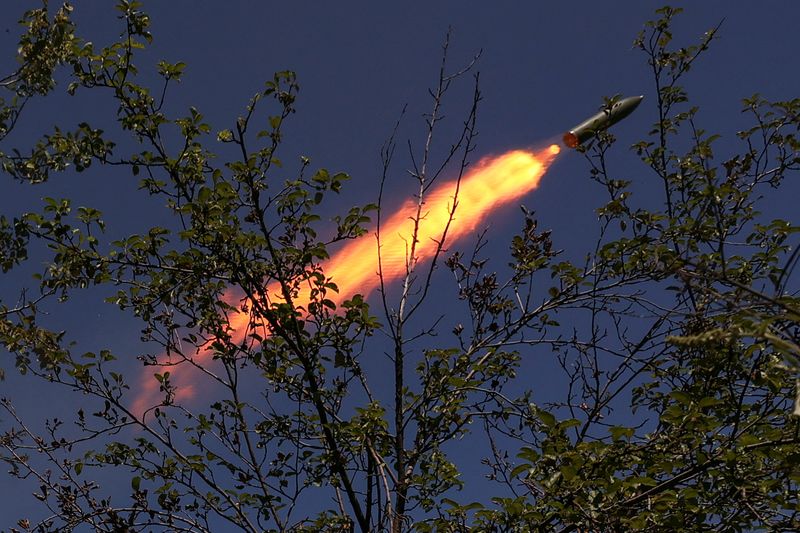Ukrainian heavy artillery inflicts ‘hell’ on Russian lines near Bakhmut
2023.09.23 07:00

© Reuters. FILE PHOTO: Ukrainian servicemen fire a RAK-SA-12 small multiple launch rocket system towards Russian troops near the front line town of Bakhmut, amid Russia’s attack on Ukraine, in Donetsk region, Ukraine July 10, 2023. REUTERS/Sofiia Gatilova/File Photo
By Anna Voitenko
NEAR BAKHMUT (Reuters) – The use of heavy weapons supplied by the West in the fierce battle raging on the outskirts of Bakhmut, which was captured by Russia in May, is inflicting a significant toll on enemy lines, Ukrainian commanders have told Reuters.
Buoyed after the capture last week of the key village of Klishchiivka, Ukrainian troops have lauded the 155 millimetre howitzers as key equipment being provided by the United States and its NATO allies.
Unit commander Oleksandr said Ukraine’s armed forces “very much rely” on heavy artillery, including the Polish-made Krab gun and the U.S.-made M109 self-propelled howitzer.
“Even one gun can completely turn the situation around. An attack can be stopped with one such gun,” he said.
“The main thing is to aim where needed. They (the Russians) hate our hardware. That’s what we gather from our intercepts. We hear that we keep giving them hell and they keep wondering how much ammunition we have left.”
Oleksandr, 30, described Klishchiivka – a village on the heights south of the devastated town of Bakhmut – as “one of the places they (the Russians) were clinging to.”
“We will see what’s next. We will develop our success,” he said.
Ukrainian commanders have described the capture of Klischiivka and nearby Andriivka as stepping stones to taking back Bakhmut, which fell to the Russians after months of some of the war’s heaviest fighting.
The gains have been among the most significant in Ukraine’s counteroffensive, which began in June and has struggled to break through entrenched Russian lines.
Ukraine’s President Volodymyr Zelenskiy and senior officials have hailed the advances and rejected criticism in the West that the counteroffensive is progressing too slowly.








